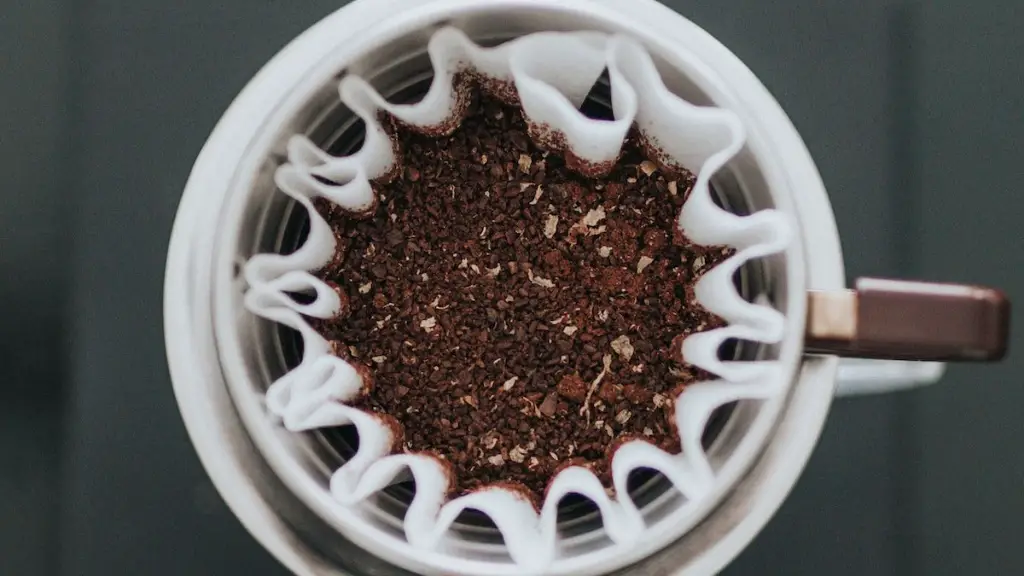Causes of Food Poisoning
Food poisoning is a major health concern. It occurs when a person is exposed to a harmful virus, bacteria or toxins that have been ingested. Symptoms of food poisoning include diarrhea, stomach cramps, vomiting, fever, and dehydration. Some more serious cases can even lead to death. These toxins and bacteria can be spread by many different sources including contaminated food and water, improper food handling and preparation, and animals or insects.
The Centers for Disease Control and Prevention (CDC) estimates that 48 million people, mostly in the United States, are affected by foodborne illness each year. According to the World Health Organization, there are more than 250 identified food-related illnesses, which together cause an estimated 420,000 deaths per year, including 125,000 deaths among children under five years old.
The Effects of Coffee on Food Poisoning
When a person has food poisoning, their body can take time to recover and often needs a rest to heal. Coffee has some medicinal properties and can be helpful in relieving some of the symptoms associated with food poisoning, such as exhaustion and headache. It also acts as a diuretic and helps flush out toxins, and is often used to help settle an upset stomach.
However, as with all medicines, coffee should be taken with caution and depending on the severity of the food poisoning, it may or may not be recommended. Experts warn that drinking coffee in large amounts could actually make one more sick, as caffeine is a diuretic and can lead to dehydration, which can worsen and prolong the symptoms associated with food poisoning.
Can You Drink Coffee with Food Poisoning?
The general consensus is that it is safe to drink coffee with food poisoning. However, since everyone reacts differently to food poisoning, it is best to consult a doctor or healthcare provider before drinking coffee, as they are best able to give a proper evaluation.
It is important to keep in mind that if one opts to drink coffee while suffering from food poisoning, it is best to maintain a moderate intake. Too much caffeine can further dehydrate the body, resulting in more severe symptoms.
It is also important to note that for some individuals, coffee and other caffeinated beverages can actually make food poisoning worse, so it is important to identify any negative reactions before consuming any caffeinated drinks.
Preventing Food Poisoning
The most important thing one can do to prevent food poisoning is to practice good hygiene. This includes washing your hands regularly, especially before handling, preparing, and eating food. Additionally, foods should be cooked thoroughly and kept in a refrigerator to preserve their freshness.
Other tips to prevent food poisoning include avoiding unpasteurized dairy products and undercooked meats, being careful with food packaging, avoiding cross-contamination, and avoiding foods that have been left out at room temperature for too long.
Effects of Caffeine on the Human Body
Caffeine is a stimulant that affects the central nervous system, which is responsible for regulating physical and mental activity. As a result, people may experience a variety of positive and negative effects when consuming caffeine.
In moderate amounts, caffeine can help increase focus and energy levels. It is also thought to have some beneficial effects on digestion and can help reduce muscle fatigue.
However, too much caffeine can lead to restlessness, insomnia, headaches, increased heart rate, and an increased risk of dehydration. Additionally, regularly consuming large amounts of caffeine can lead to dependency, which can lead to withdrawal symptoms when one suddenly stops consuming caffeine.
Advice from Medical Professionals
When it comes to food poisoning, it is always advisable to listen to your body and to follow the advice of medical professionals. It is important that one is aware of their own symptoms and reactions as each individual can respond differently to food poisoning.
Medical professionals can help identify which foods are safe to consume and which are not. They can also provide advice on the best way to manage symptoms and reduce the risk of further illness and complications.
How Long Does Food Poisoning Last?
The duration of food poisoning can vary depending on the type of food that has been consumed and the severity of the symptoms. Generally, food poisoning can last anywhere from a few hours to a few days.
Recovery from food poisoning is often aided through rest, hydration, and over-the-counter medications to manage symptoms. However, if symptoms do not improve or worsen, it is important to seek medical attention.
Caffeine Alternatives
If one has food poisoning, it is best to avoid coffee. However, there are other alternatives to coffee that can help provide much-needed energy, such as green or black tea, mate, yerba mate, miso soup, and diluted 100 percent fruit or vegetable juices.
Additionally, herbal teas can be used as a mild stimulant and have the added benefit of being rich in antioxidants, which are thought to have a range of health benefits.
Coffee with Milk Alternatives
If one is used to drinking coffee with milk, there are several milk alternatives that can be consumed with coffee instead, such as almond milk, soy milk, coconut milk, and oat milk. All of these non-dairy milk substitutes are plant-based and can provide an additional source of nutrients as well as a delicious alternative to cow’s milk.
These milk alternatives are also often recommended for people looking for healthier alternatives to dairy milk, for those who are vegan or lactose intolerant, and for those who are experiencing food poisoning.
When to See a Doctor
If a person is experiencing symptoms of food poisoning that is not improving or that is getting worse, it is important to seek medical attention. It is also recommended to visit a doctor if one is experiencing severe or prolonged vomiting, or if they have a fever of 103 degrees Fahrenheit (39.4 degrees Celsius).
It is also important to visit a doctor if food poisoning persists for more than a few days, as this could indicate a more serious condition such as a bacterial infection. Additionally, medical professionals can recommend the best way to prevent further food poisoning and can provide advice about when to resume drinking coffee and other caffeinated beverages.


